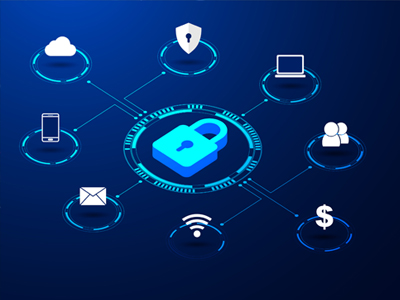As more and more enterprises face data issues, information governance has become the center of attention. On the surface, many companies have become more data-driven and make the most out of artificial intelligence and machine learning models. But the research suggests that there are still many companies that are reluctant to adapt and embrace information governance. The objective for organizations now is to make sure data serves as an asset rather than a liability.
What Exactly Is Information Governance?
In layman’s terms, information governance refers to the way an organization uses and manages information. In 2021, information governance is a standard practice for enterprises to minimize risks and get more involved in data management to ensure compliance.
Information governance boils down to how an organization evaluates its method to collect and store data onsite and online. It is crucial to understand that information governance also involves “how” an organization stores, collects, and uses data.
How Information Governance Software Comes into the Picture
Companies now use information governance software to manage and use the information effectively and ensure compliance with data regulations. It is easy to confuse information governance with data governance because both are complementary areas.
The truth is that data governance is just one aspect of information governance. On the other hand, information governances involve a company’s information like documents, data, cybersecurity, and records.
Importance of Information Governance to Achieve Success
It’s 2021 and information governance has become a strategic approach for organizations to keep an eye on their archival records, documents, and digital data to drive long-term business success. What’s interesting is that information governance can revolve around a variety of multi-disciplinary procedures, tools, controls, technologies, and policies.
In fact, it is an effective way for organizations to meet legal, operational, and regulatory demands. And once an organization manages to achieve balanced data and information use, it can meet the security and regulatory demands.
Ultimately, information governance maximizes the data value, mitigates data risks, and ensures legal compliances. On top of all, information governance also improves the operational transparency of organizations. In the same manner, information governance minimizes the chance of potential regulatory penalties and legal discoveries.
What Involves Information Governance
Content Management
It refers to the practice of capturing, storing, delivering, and managing data or content. Companies use a wide range of tech tools to manage an ocean of unstructured information.
Access Governance
It is a fundamental practice of information governance that makes it easier for companies to manage and as well as reduce risks that stem from irrelevant data access.
Information Lifecycle Management
ILM points to policies and strategies to implement online storage systems. It includes security infrastructures, data center, disaster recovery, backup and data protection, data replication, data storage and architecture management, and long-term archival of data retention.
Audit Trails
Audit trails are records that offer a roadmap to see different activities in workflow, events, or operations. You can use information governance software to preserve assets like messages, meeting records, and critical documents.
Knowledge Management
One of the hallmark aspects of information governance is to help companies create, use, manage, and share the knowledge information to achieve corporate objectives.
Records Management
Records management is a function that allows organizations to manage information throughout its entire lifecycle. Records management involves identifying, categorizing, storing, protecting, tracking, retrieving, and preserving records permanently.
Workflow Automation
Companies use workflow automation solutions in order to digitize and as well as automate their repetitive tasks in information governance-specific processes. As a result, it improves the accuracy and speed of information processes, cuts down costs, and reduces errors altogether.
Sum Up
Before organizations decide to become more transformational and proactive towards data, they have to build information governance foundation blocks. And once an enterprise reaches a high maturity level, large data sets will become an asset.
The fact is that companies need a reliable partner to optimize cloud and onsite computing and ensure data protection. VAST continues to be proactive about data-driven approach and helps companies avoid disruptions. After all, a high degree of focus on technology creates a high return on investment.
With the Data Protection and Archiving solutions from VAST, you can leverage the perfect information management programs and meet your data governance, archiving, and data protection needs. With Veritas, you will receive instant support and deployment of dedicated software.
VAST offers support solutions that cater to unique business needs and environments. Contact us to avoid interruptions and get the expertise of the IT professionals you deserve.


